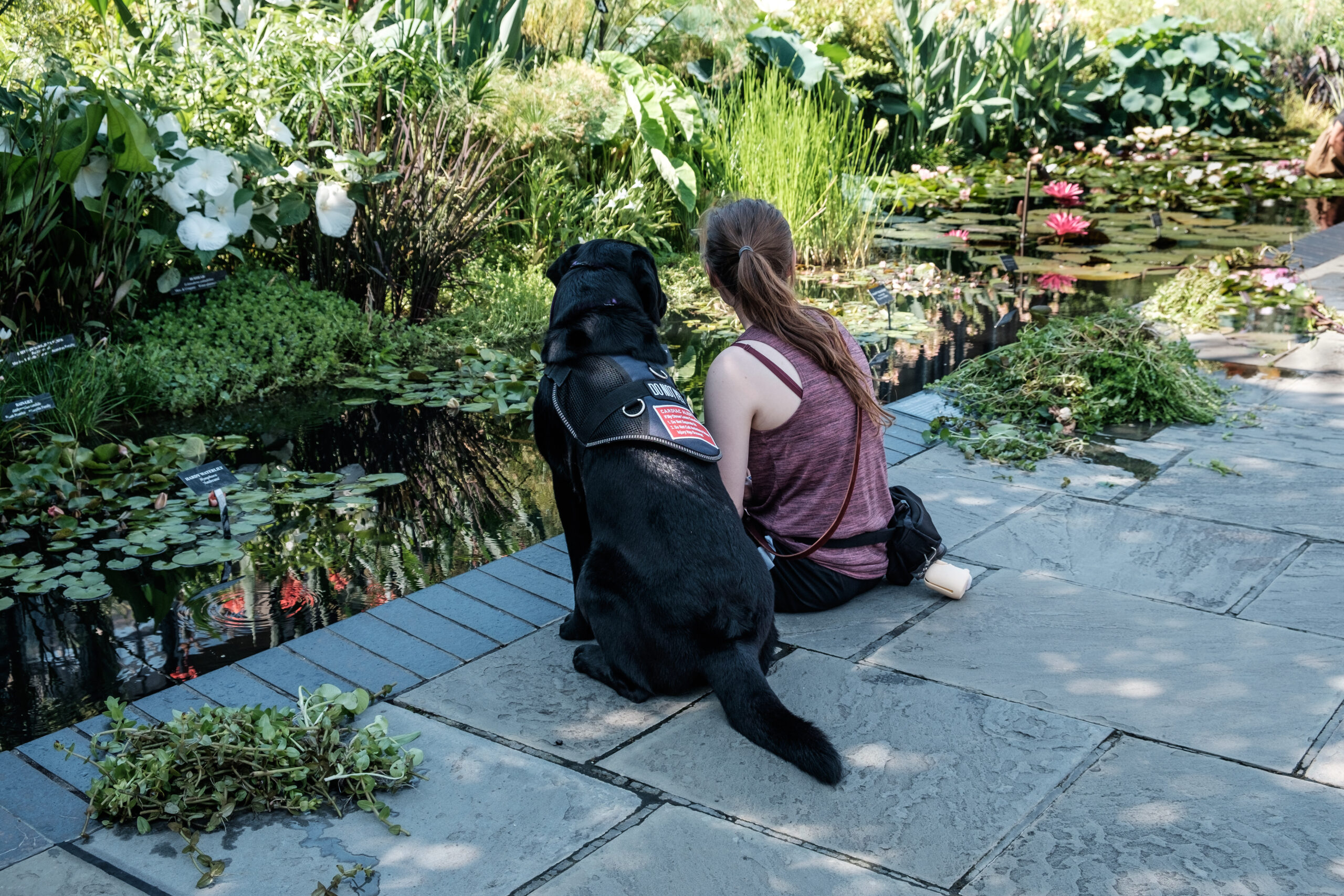
About Our Dogs
About Our Dogs
CPL’s service dogs go through an intense two-year training program. In addition to learning advanced obedience and social skills, they learn techniques to help people with disabilities meet the challenges of daily living. We breed and train several different types of service dogs at CPL, and work with a variety of dog breeds, as well as some rescues.
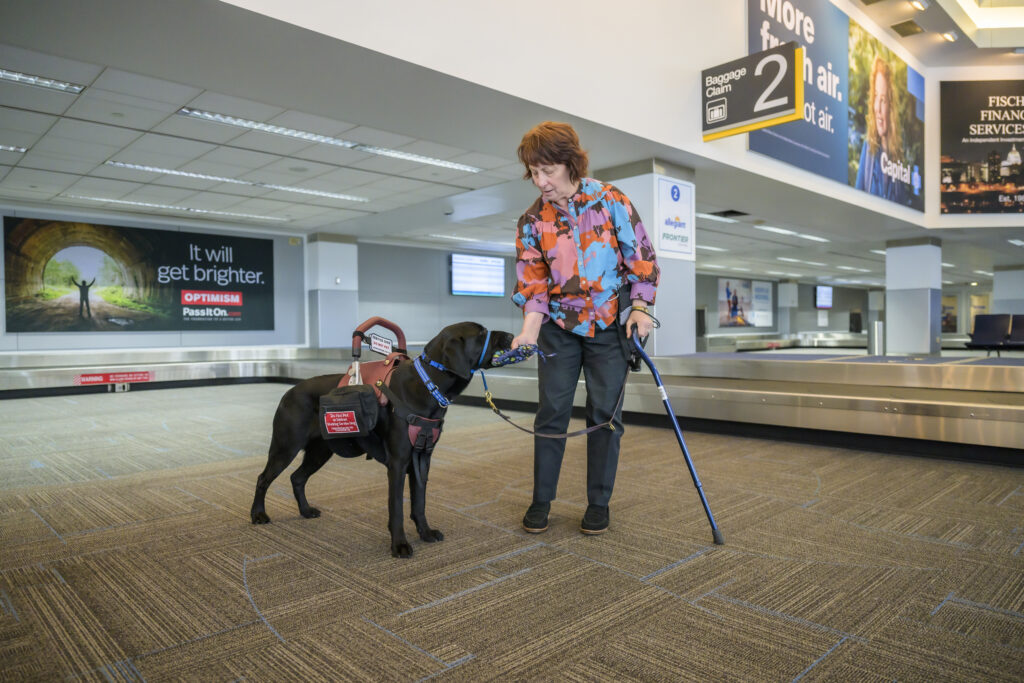
Types of Service Dogs
Service dogs are defined as a dog that works for individuals with disabilities other than blindness or deafness. The type of tasks the dog is trained to do depends on the person’s disability. Canine Partners for Life trains dogs primarily to assist with physical disabilities. Our dogs are trained to retrieve items off of the ground; carry bags; open doors by pressing a button or pulling a specially designed strap; and open and close cabinets, refrigerators, and drawers. Some of our dogs are trained to perform additional tasks to suit their recipient. We often categorize these specialists into the following types.
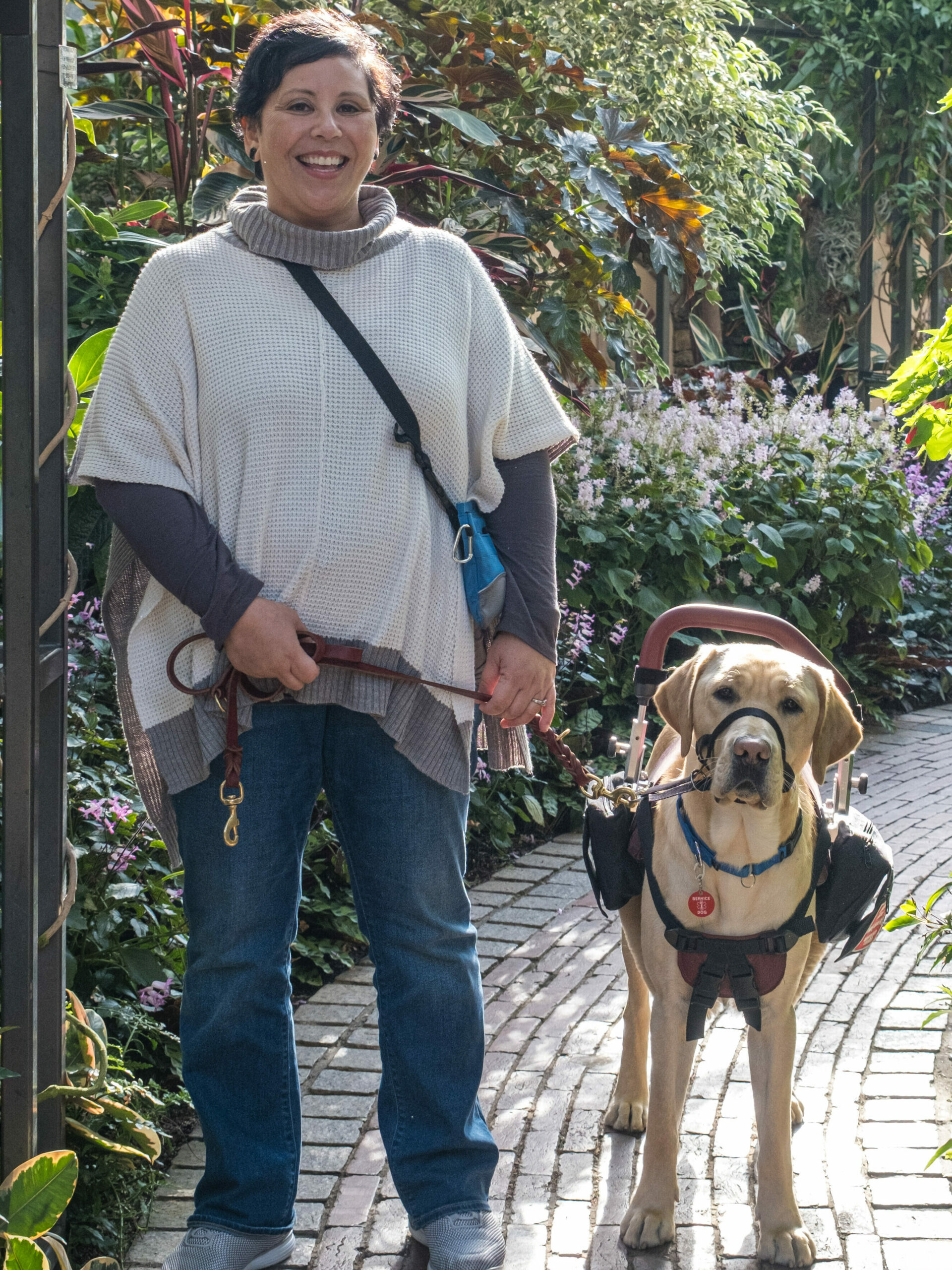
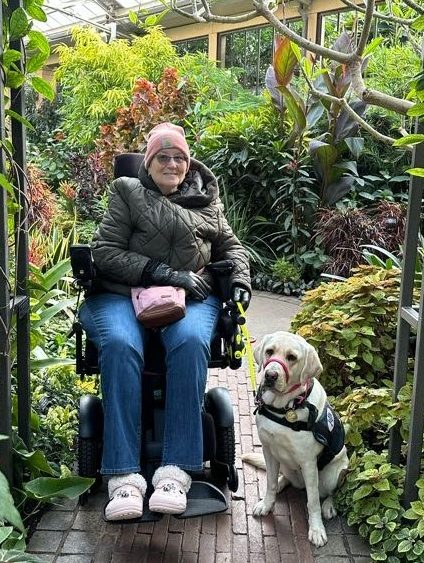
Medical Alert Dogs
Medical alert dogs have an innate ability to sense the onset of many medical events such as blood pressure drops, seizures, and migraines. These may be caused by conditions like diabetes, POTS, cardiac syncope conditions, narcolepsy, epilepsy, and many more. While alerts for blood sugar highs and lows can be reliably trained, scientists have not been able to uncover what dogs are able to sense to alert to cardiac episodes, seizures, or sleep attacks. Not every dog will alert, so care must be taken to test possible alert dogs and learn how they communicate this information. With the forewarning that a medical alert dog can provide, their handler can safely prepare for, or even avoid, an event by taking medication, sitting or lying down, or calling for human assistance. As these medical conditions often cause symptoms like vertigo, fatigue, or difficulty with fine motor control, medical alert dogs will still use their general service skills to assist their partner.
Balance and Support
Balance and support dogs wear a carefully designed harness, which is custom fit to both the dog and their human partner. This harness can provide the dog’s handler a steady point of reference to assist with balance; a light pull to reduce fatigue; or physical support so they can move without falling or reduce the pressure put on a painful leg. Dogs must have the proper musculature, and be comfortable in the harness to be suited for this role. Many hours of training go into gradually acclimating them to the weight of the harness, the additional bulk when maneuvering tight spaces, and how their future handler might lean on or pull against the harness to stay safely on their feet.
Wheelchair Assistance
Wheelchair assistance dogs are trained to navigate with a wheelchair user, keeping their paws safely away from the wheels while helping open doors, take items off of shelves, retrieve things off of the floor, and carry a wallet from their handler to a cashier or vice versa. Depending on their handler’s needs, the dogs may also be trained to move the human’s feet on and off of the wheelchair’s footrests; fold up and bring down the footrests; or help pull the chair in some situations.
Types of Companion Dogs
Companion dogs are dogs who have a different skillset than service dogs. Often, their primary job is to be a steady companion who offers unconditional love for their person or people. Companion Dogs do not have the same public access rights as Service Dogs. Canine Partners for Life trains several types of companion dogs.
Interested in applying for a Companion Dog?
Contact info@k94life.org or call (610) 869-4902 for a Companion Dog Application
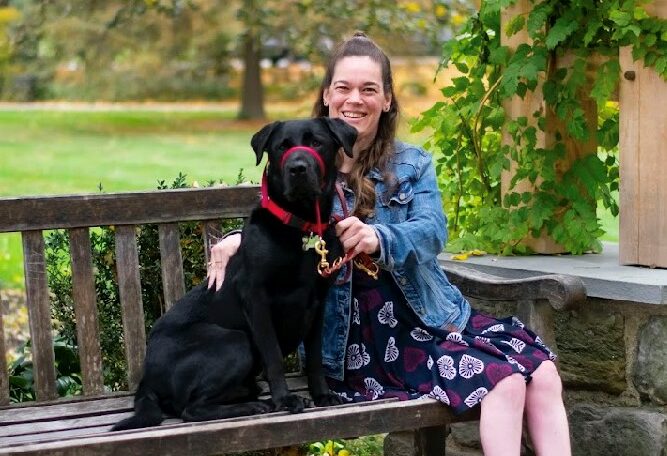
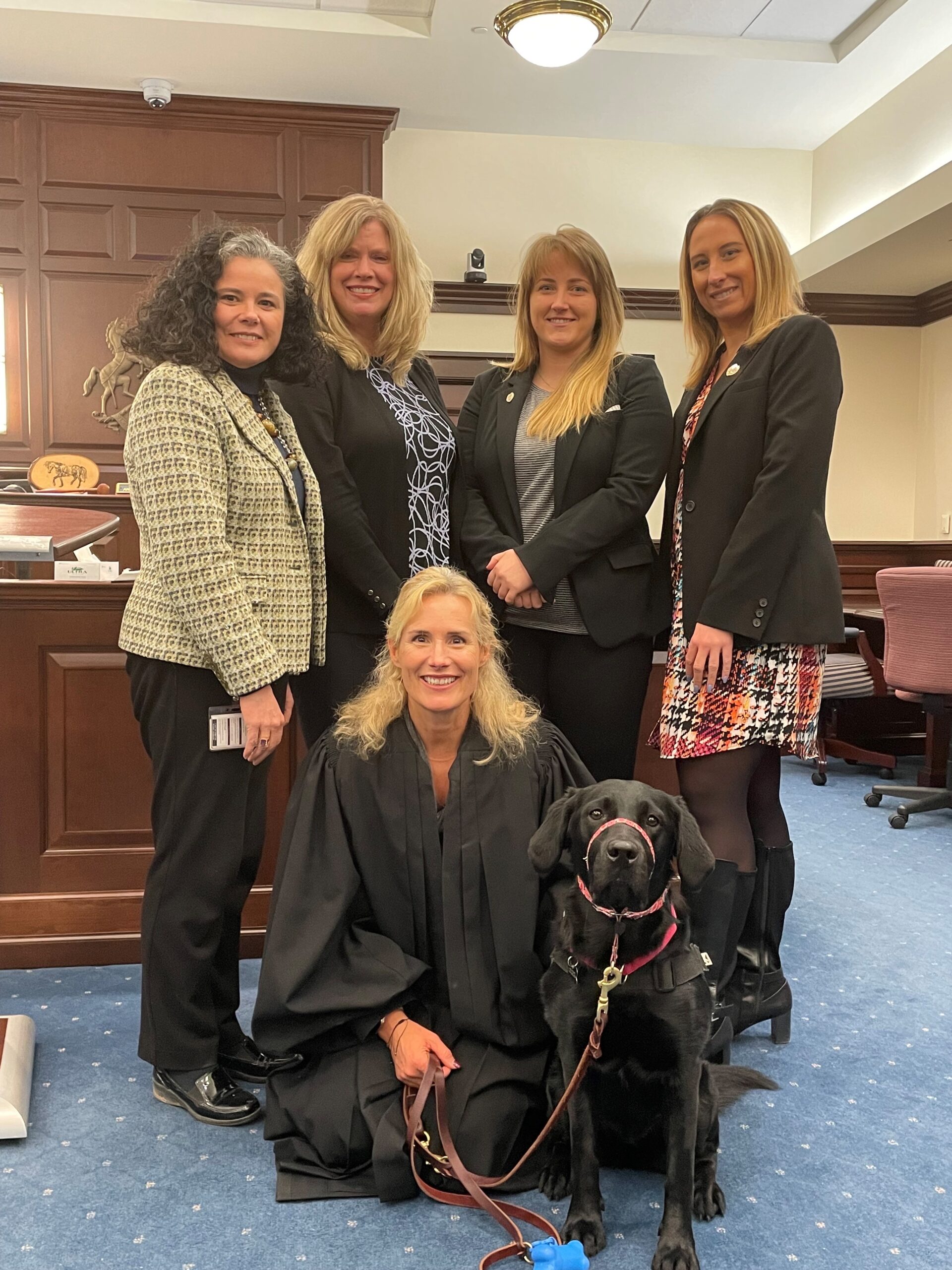
Home Companion Dogs
Home companion dogs are placed with individuals who would benefit from a well-trained companion, but would have difficulty raising and training a dog on their own. These dogs bring comfort, encouragement, and joy to their human partners in the home environment. Some home companions may also assist with skills such as retrieving objects; carrying items; or opening or closing doors, drawers, and refrigerators. Home companion dogs are considered for individuals of all ages who live within 250 miles of the CPL offices in Cochranville, PA. Because home companion dogs are not service dogs, they can only accompany their handler to pet-friendly outings.
Courthouse Companion Dogs
Courthouse companion dogs are placed with a courthouse or related facility to provide emotional comfort and support to victims and witnesses of crime who may be affected by the stressors of the judicial system. A courthouse companion dog is usually placed with a county District Attorney’s office and lives with a staff member from that office during non-working hours. Courthouse Companion dogs are placed within 50 miles of the CPL facility.
Residential Companion Dogs
Residential companion dogs reside within residential facilities specifically for the elderly or disabled. A residential companion dog lives within the facility, becoming an integral member of the community. In addition to visitation, the dogs are frequently incorporated into speech/language, physical, and occupational therapies. Residential Companion dogs are placed within 50 miles of the CPL facility.
Medical Facility Companion Dogs
Medical facility companion dogs work in a medical facility, such as a doctor’s office. They provide emotional support and a calming presence to those who find medical appointments and procedures stressful. They typically are placed with a staff member of the office and live a happy pet life outside of office hours. Medical Facility Companion dogs are placed within 50 miles of the CPL facility.
How Our Dogs Are Trained
When a puppy is born into the CPL family, they have no idea how big and bright their future is! It takes A LOT of training to become the beautifully well-mannered service dogs you see in public, and for some of our puppies, that training begins at just a few weeks of age.
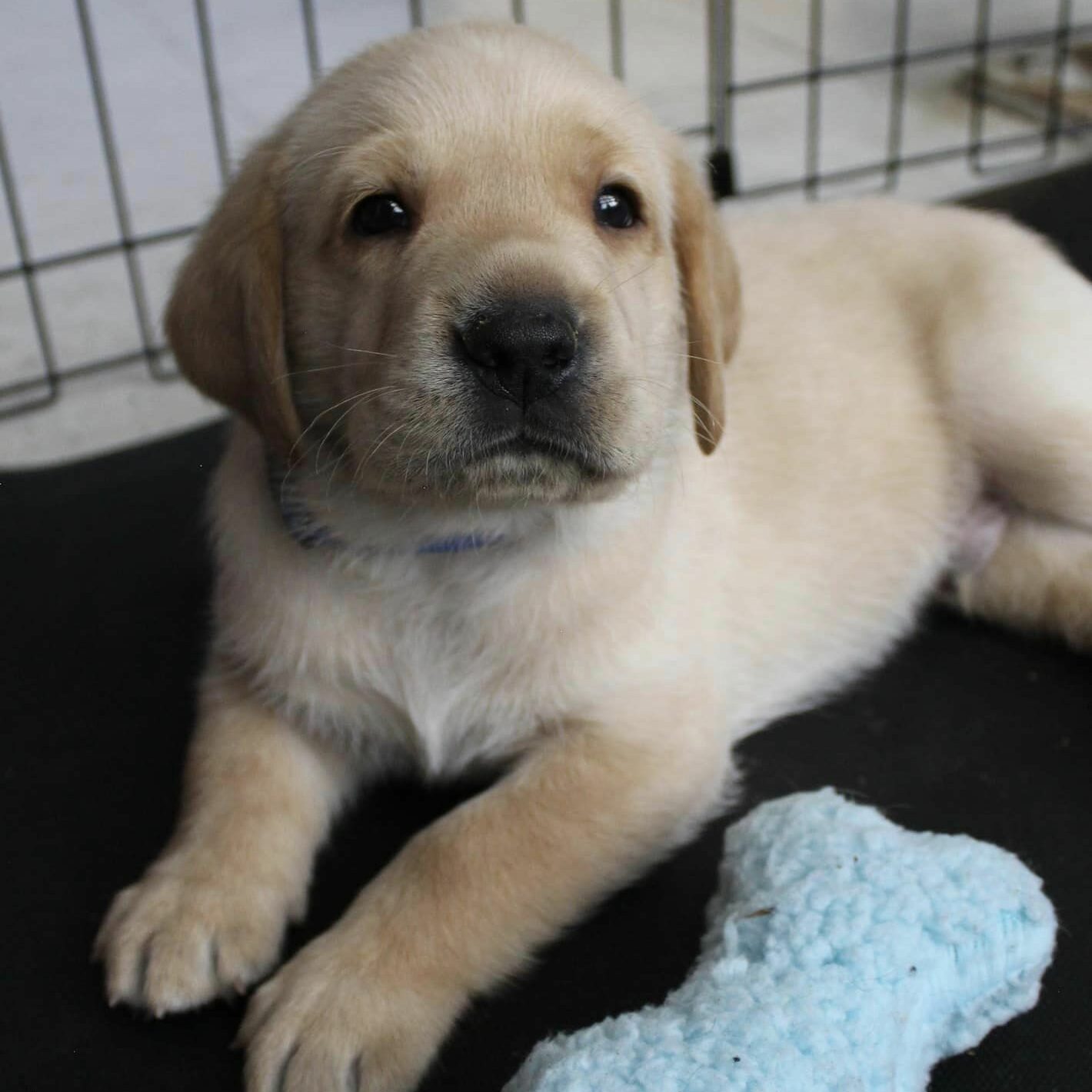
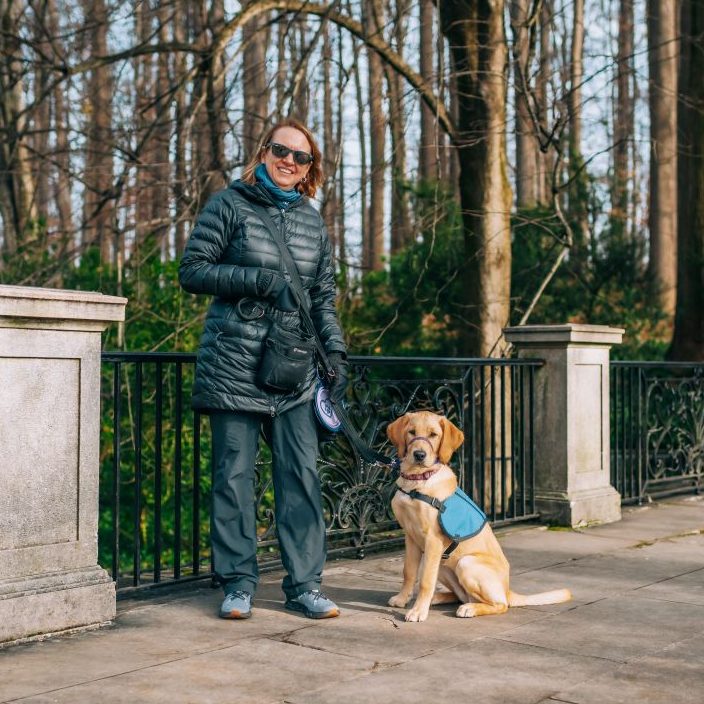
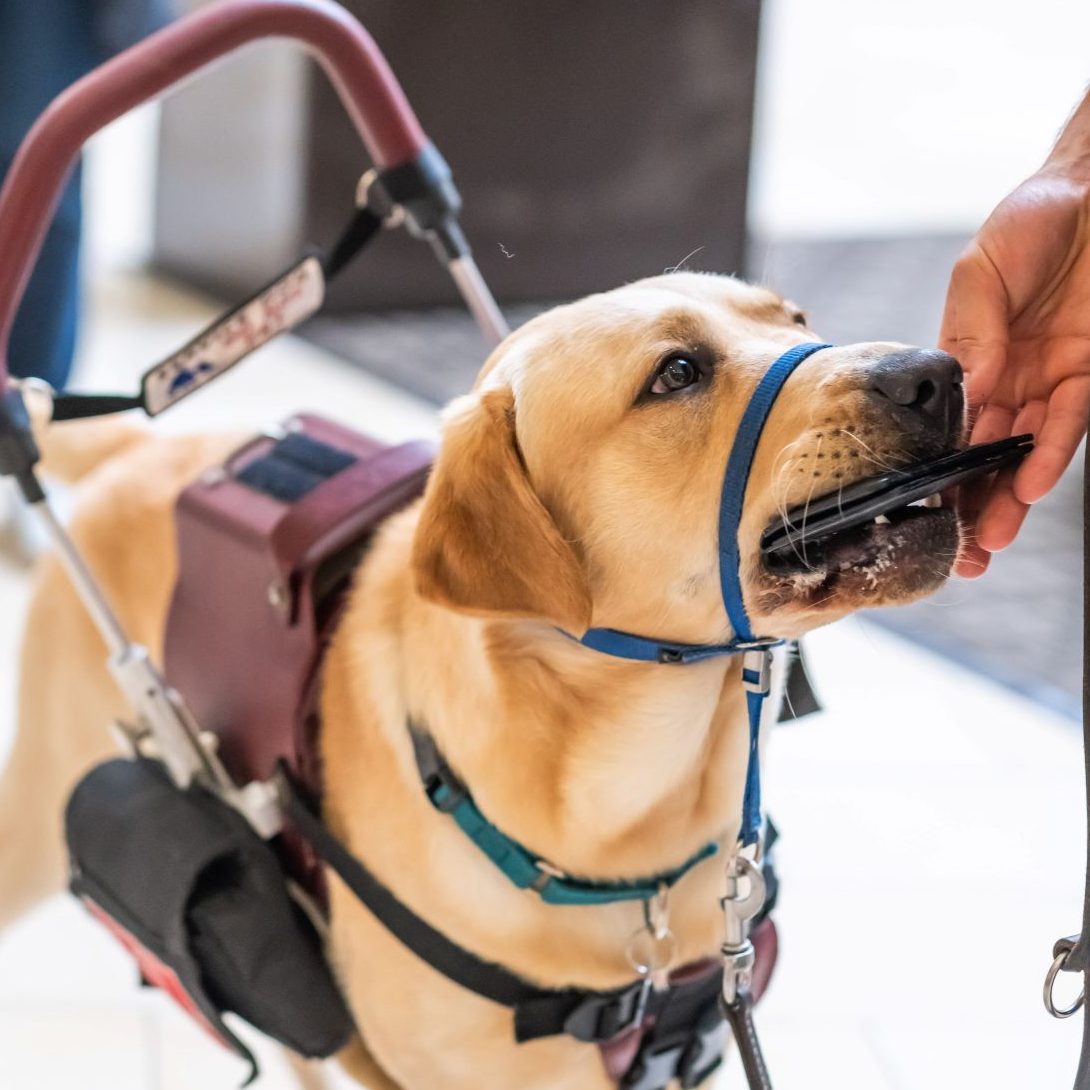
Whelping
Most puppies come from our own in-house breeding program. These puppies are bred for the specific traits and qualities that we look for in a service dog. Puppies are whelped on our campus and are cared for by our staff and volunteers for their first several weeks of life. Around four to five weeks old, we will send them to our partners at SCI Somerset. The handlers in our program there have been specially trained to start training the puppies while they are still nursing. They provide socialization, house training, crate training, and a few basic obedience skills – and of course, a lot of love, play, and cuddle time!
Along with our own breeding program, we are members of the Assistance Dogs International North America Breeding Cooperative (ABC). This program allows us to receive puppies from other accredited service and guide dog organizations across the country, and even internationally. In return, we help distribute some puppies from our ABC litters to other organizations.
We are also fortunate to receive donations of puppies from breeders who believe in our mission and hope that their puppy will grow up to assist a person who needs them.
Community Puppy Raising Program
At or shortly after eight weeks old, puppies are placed with a volunteer community puppy raiser. They will live with that volunteer until they are around six months old. This time period is critical in terms of socialization. Puppy raisers focus on building confidence in all sorts of situations, from the weekly grocery store run to a middle school band concert to pickleball tournaments at the local community center. The puppies are introduced to basic obedience skills like sit, down, shake paws, and even learn how to untangle their feet from their leash!
Collegiate and Prison Puppy Raising Program
Around six months old, the puppies graduate to their next stage of training. They will go either to our partner college or one of our six prisons.
At college, they live in specially designated housing and train with a small team of student volunteers. They go to classes, stores, and events with these trainers, learning new obedience and service skills in their downtime.
Prisons participating in our Prison Puppy Raising Program take in puppies, who then work with trained inmate handlers. The puppies learn obedience and service skills while accompanying their handler to class, work, and doctor’s visits within the facility. Volunteers in the area will take the puppies out on socialization trips to libraries, schools, parades, and more.
Whether at college or prison, the puppies learn about many new people, sights, and sounds, preparing them to do their job in any situation they encounter!
Advanced Training
Once the puppies have learned all they can from their college or prison handlers, they return to CPL’s campus kennels to begin their final stage of training. Here, we evaluate them constantly to determine what type of service dog they’re suited to be, or if the companion track is the right fit for them, or if we want them to contribute to the next generation of CPL service dogs. CPL’s trainers work on advanced service skills and focusing in on the tasks they will need to help their future recipient. The dogs are tested to see if they have the innate ability to alert to medical conditions, trialed in the mobility harness, and worked in as many situations as possible to ensure they are confident and focused when on the clock.
Once a dog’s track is determined, they are carefully matched to an applicant based on their size, pace, talents, preferred lifestyle, and temperament. Their final few months of training are focused on tasks specific to their intended recipient and continued work in public to prepare them for their full-time job!
But it’s not all work – kennel dogs get daily playtime, cuddle sessions, enrichment, and walks when they’re not on the clock. Trainers will assign them to a volunteer for an occasional weekend in a home setting, and CPL office staff will pick up a dog from the kennel and spend the day with a canine companion resting on a bed beside them. They are truly lucky dogs with a whole community of people committed to their care and success!
At any given time, we have approximately 60-80 puppies and dogs in training. We are incredibly grateful to all of the volunteers who make our puppy program possible!
Get Notified When Service Dog Applications Are Available!
Our waitlist for new service dog and alert service dog applicants is temporarily closed.
Not sure if you qualify for a service dog from CPL?
Adopt a Released Dog
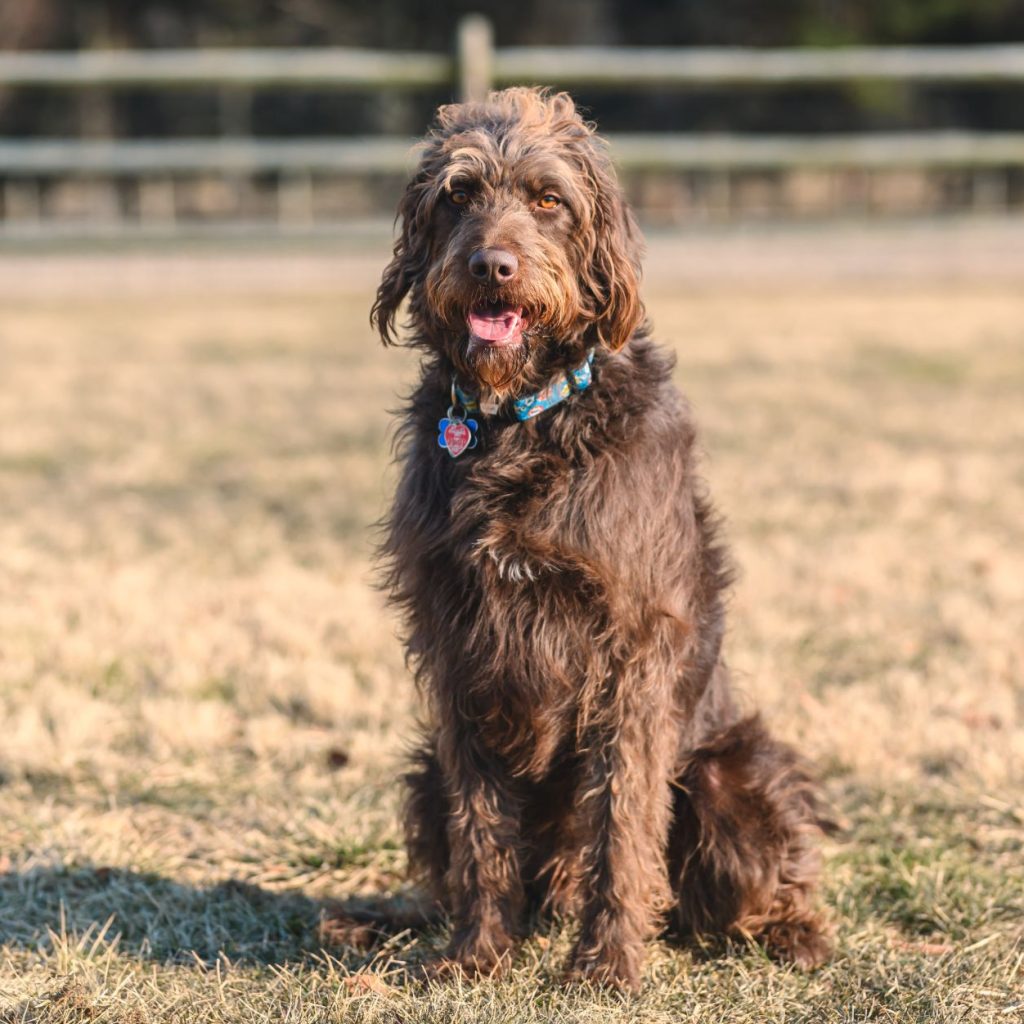
Canine Partners for Life makes every attempt to select or breed dogs that will be successful in our service or companion dog programs. Through this process, some dogs may not ultimately be suitable to be matched with a partner for one reason or another. These dogs may have some physical or behavioral challenges that would make them unlikely to be successful as a working service or companion dog. When this happens, they are released from the training program and adopted into a loving home. Interested individuals or families who would like to adopt one of CPL’s released dogs should complete a released dog application.
Applicants will be contacted when a suitable dog becomes available, and will be invited to meet with the dog. The reason for each dog’s release is always shared with the new potential owners. Due to the thorough nature and high success rate of our selection and breeding process, the number of released dogs available for adoption is relatively low. For more information on adopting a release dog, please contact 4everhomes@k94life.org.
Get Notified When Our Service Dog Applications are Available
A service dog can offer individuals with disabilities significant support and help. Sign up to be notified when service dog applications are open!




